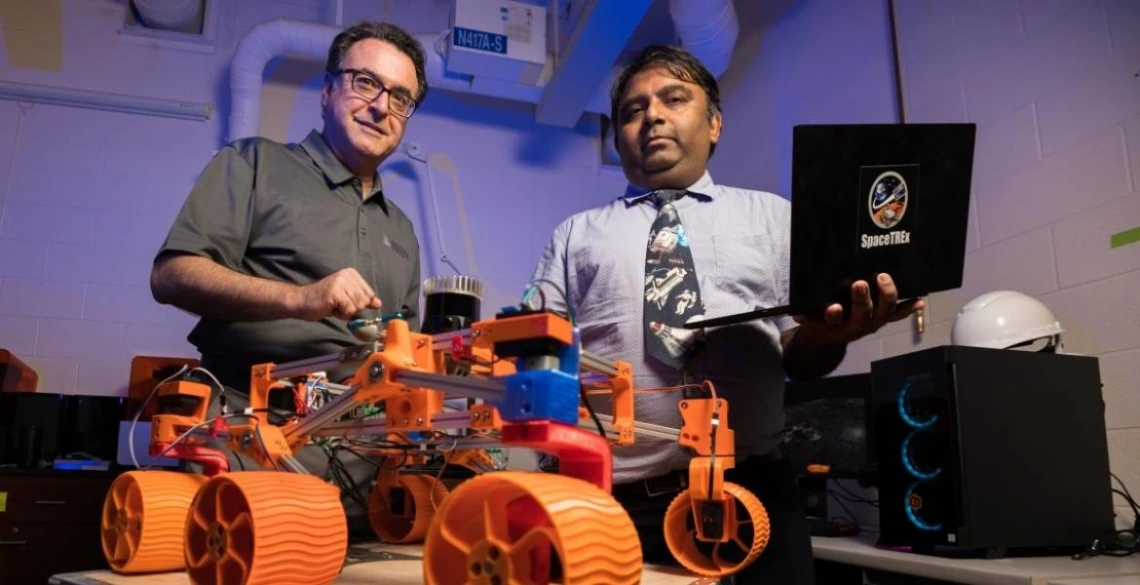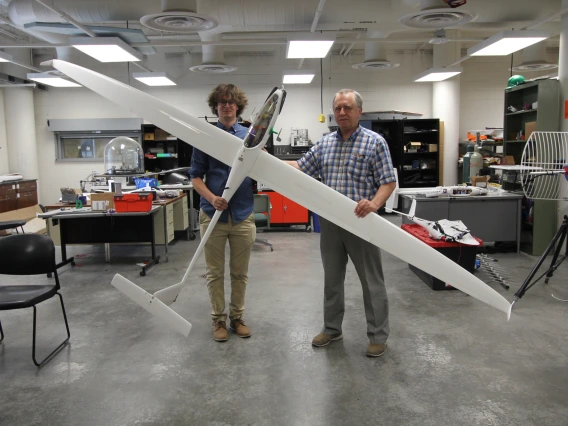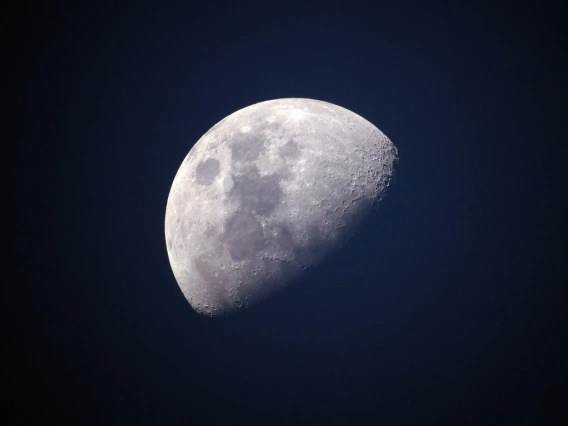University Becomes US Space Command's First Academic Engagement Enterprise Partner
The partnership will provide university faculty, students and other partners with a forum to collaboratively address pressing challenges of human security, exploration, development and settlement of space.

Faculty members Jekan Thanga (right) and Moe Momayez with a 3D-printed rover prototype used for testing a new generation of miniature sensors for applications in lunar mining. Photo: Chris Richards
The United States Space Command has selected the University of Arizona as the inaugural member of its new Academic Engagement Enterprise, designed to train the future workforce and increase research and innovation related to space and national security.
The United States Space Command, or USSPACECOM, established the Academic Engagement Enterprise, or AEE, on Sept. 1 to engage the future workforce, advance its space-applied research and innovation programming, expand space-focused academic partnerships, and increase dialogue between the agency and academia.
UArizona's relationship with USSPACECOM will provide a forum for students, faculty and university partners to collaboratively address pressing challenges in human security, exploration, development and settlement of space.
The United States relies heavily on its space assets, including GPS, weather forecasting and communication satellites to permit essential day-to-day activity, said Jekan Thanga, a UArizona associate professor of aerospace and mechanical engineering in the College of Engineering. The volume of space traffic is expected to increase with the introduction of mega-constellations, new space stations and on-orbit servicing facilities into cislunar space, which is the space between Earth and the moon. If not properly managed, the increased traffic could stifle future growth prospects and limit access to space.
"The expected wider expansion into space will require mastery in living and working within cislunar space," Thanga said. "The university, through long experience-spanning space missions, technology and habitats, will be developing a multiprong education program and skillset that will equip USSPACECOM personnel tackle these challenges."
Thanga will coordinate with the university's various space-related entities to establish a formal, graduate-level program in space research, addressing needs identified by USSPACECOM.
"The University of Arizona has a rich history with NASA dating back to the 1960s, in which it has taken on some of the nation's toughest space challenges and delivered proven results to NASA," Thanga said. "In that same spirit, we seek to be problem solvers for the next wave of challenges that inevitably come with wider expansion into space."
Several other space research and education efforts are underway at UArizona, including research on detecting, characterizing, and tracking objects between Earth and the moon; a NASA-funded ASTEROIDS laboratory integrating research with education to build a well-prepared science, engineering and technology workforce; and the National Science Foundation Center for Quantum Networks.
The National Science Foundation Higher Education Research and Development survey ranks UArizona No. 1 in astronomy and astrophysics and fifth in the physical sciences and NASA-funded activity.



